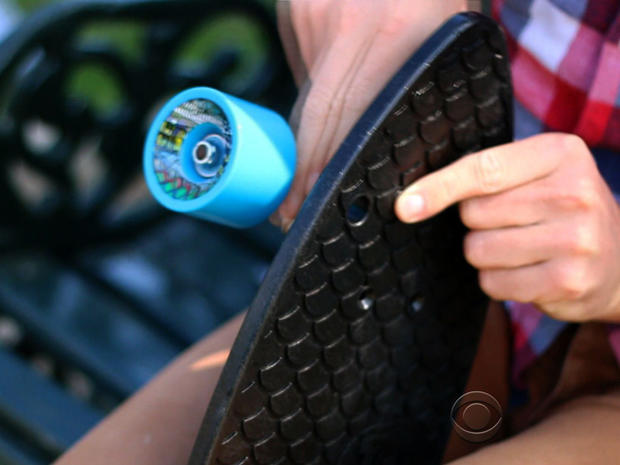Can a skateboard save the world?
NEW YORK -- Bureo skateboards look like fish because they are made from old fishing nets.
They started out as garbage -- fishing nets discarded in the waters off Chile. About 640,000 tons of these nets clog the world's oceans, and that's only a tenth of the world's debris.
According to a report from the Ocean Conservancy, in just one day, worldwide volunteers picked up more than 12 million pounds of rubbish from beaches and waterways. The top three culprits were cigarette butts, food wrappers and plastic bottles.
"And we were just struck with this issue of plastic in the ocean, and we just kind of made a mission to do something about it," says Bureo co-founder David Stover.
Stover, along with co-founder Ben Kneppers, started in Chile, where fishing is a major industry. They figured out how to convert the fish nets into plastic pellets, which could be used in a mold. And Bureo Skateboards was born.
"Every day has been a battle, to be perfectly honest," Kneppers says. "I mean, we've had to create an entirely new supply chain from scratch."
The project has been funded by Northeastern University's Idea program, the Chilean government and donations through Kickstarter. They're starting small, with an initial production run of 2,000 boards that will sell for $145 each.
But can a skateboard save the world?
"So, we're starting with skateboards, yes," Kneppers says. "We chose it because it's a positive product that people can connect with, especially this next coming generation. We really wanted them to be aware of this problem and better educated -- but also look at it in a different way and a positive perspective and think, 'What else can we do with our waste?'"
And judging from the public's reaction, their plan is rolling right along.

